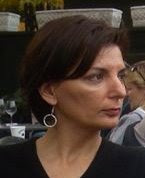Here's a September update for the April 1st Project, including some pictures of the journal at the end.
"In heaven, all the interesting people are missing." - Nietzsche
"The important thing is not so much that every child should be taught, as that every child should be given the wish to learn." - John Lubbock
A headline from the July 25th issue of The Economist (yes, I have a stack or two of magazines to go through) -- "Waking from its sleep: A quiet revolution has begun in the Arab World; it will be complete only when the last failed dictatorship is voted out."
Design, typography, graphics, and more:
I Love Typography
typenuts
grain edit
Poster Cabaret
The Deck
Flick Out
Web Urbanist
Deco Journal
Cool Boom
Cult Case
From
A Short History of Myth: "Mythology was therefore designed to help us to cope with the problematic human predicament. It helped people to find their place in the world and their true orientation."
From the Office of Management & Budget: $9 Trillion -- Projected federal budget deficit over the next 10 years, $2 trillion more than forecast in February.
Oulipo - a loose group of mainly French-speaking writers and mathematicians.
KQED: The Writers Block
Slate's Audio Book Club
The Writing Show
WSJ Headline on September 12: "Man vs God"
Book to read:
The Elegance of the Hedghog by Muriel Barbery. Thanks for the tip Teresa!
Question: What is the truth of this situation? From
Peaks and Valleys by Spencer Johnson.
Last.fm
Lala
Thru You
A list of plays to read that came from the inside back cover of
'Night Mother by Marsha Norman (a powerful play):
Three Tall Women by Edward Albee
Broken Glass by Arthur Miller
Suburbia by Eric Bogosian
All in the Timing by David Ives
Hello Again by Michael John LaChiusa
Pterodactyls by Nicky Silver
Lonely Planet by Steven Dietz
The America Play by Suzan-Lori Parks
The Fourth Wall by A.R. Gurney
Julie Johnson by Wendy Hammond
Four Dogs and a Bone by John Patrick Shanley
Desdemona, A Play About A Handkerchief by Paula Vogel
The Lights by Howard Korder
The Triumph of Love by James Magruder
Later Life by A.R. Gurney
The Loman Family Picnic by Donald Margulies
A Perfect Ganesh by Terrence McNally
Spain by Romulus Linney
The African Company Presents Richard III by Carlyle Brown
Imaginary Life by Peter Parnell
Mixed Emotions by Richard Baer
The Swan by Elizabeth Egloff






